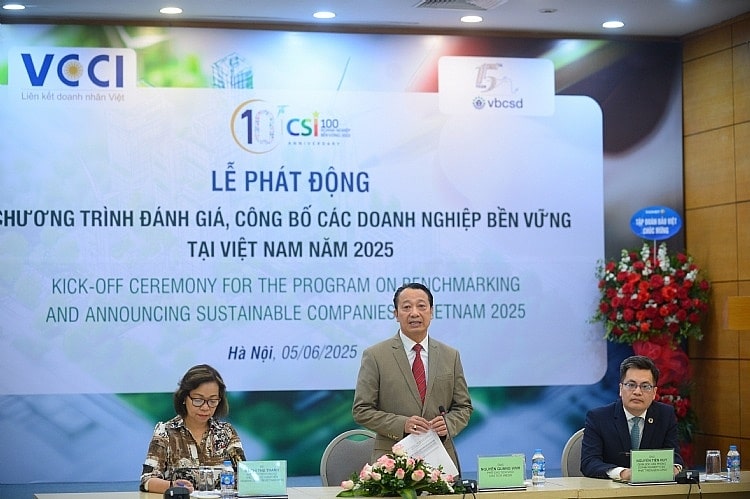
The CSI continues to recognise and encourage businesses that demonstrate a strong commitment to responsible and sustainable practices. According to Nguyen Quang Vinh, chairman of the Vietnam Business Council for Sustainable Development, the CSI has become a strategic tool that helps businesses strengthen their governance, ensuring resilience and competitiveness eventually.
“The CSI has proven its vitality over the past decade, especially as the government emphasises rewarding businesses with strong environmental, social, and governance (ESG) performance, as seen in Resolution 68 on private sector development,” said Vinh.
The 2025 version of the index is streamlined with 145 indicators, including 85 core compliance indicators and 58 advanced, practice-driven ones. A simplified version with 87 indicators has also been introduced for micro and small enterprises to widen participation in the private sector.
Pharmaceutical firm Traphaco has applied the CSI framework to align its governance and sustainability goals. “For Traphaco, sustainability is embedded in our mission to produce medicine for people’s wellbeing,” said Dao Thuy Ha, deputy CEO and board member. The company has integrated transparent governance practices, enhanced board oversight, and internal culture building as part of its sustainable growth strategy. Traphaco has been named among Vietnam’s Top 10 sustainable manufacturing companies for seven years, in addition to receiving multiple other recognitions.
Deep C Industrial Zones also sees CSI as a key to improving competitiveness and attracting foreign investors. “Our strategy focuses on four pillars; environmental circularity, social responsibility, economic performance, and collaboration,” said Diep Thi Kim Hoan, head of sustainable development at Deep C. The company aims to become Vietnam’s first eco-industrial park.
A notable addition to CSI 2025 is the requirement for mid- and large-sized enterprises to conduct a materiality analysis, helping them identify and address key sustainability challenges and adjust their strategies accordingly. Moreover, the programme now leverages AI applications to enhance participation and streamline reporting, reflecting a more digital-forward approach to ESG practices.
Nguyen Thu




